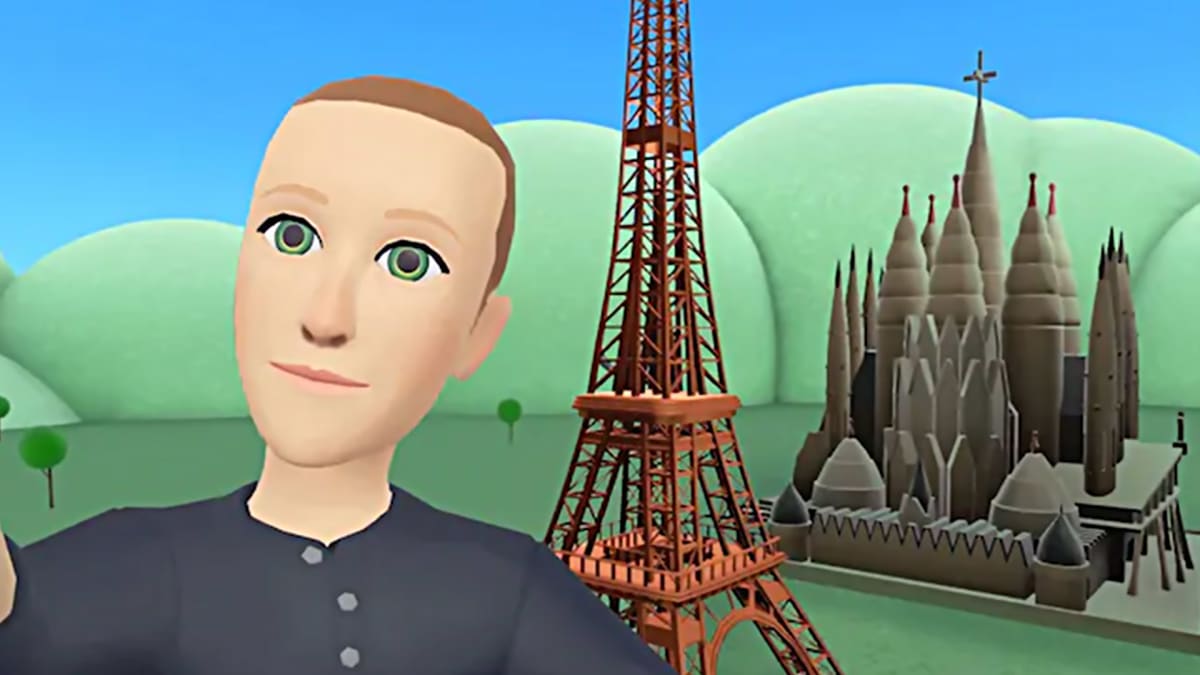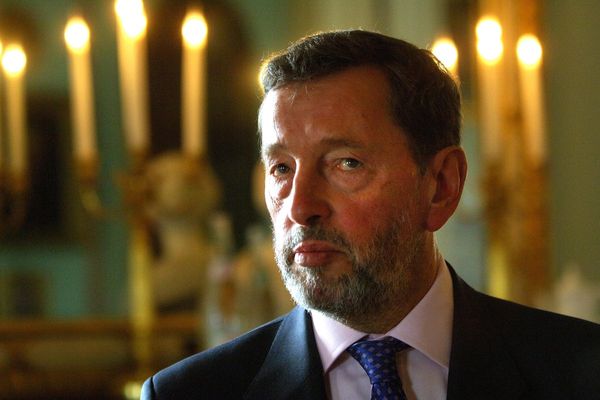
There will be no press release, no big announcement, as he would have to acknowledge that he was wrong.
But make no mistake: Mark Zuckerberg just buried the metaverse. The metaverse is dead.
The metaverse was supposed to be the Next Big Thing for the social-media tycoon, who in 2021 went so far as to rename his empire -- created from Facebook, Instagram and WhatsApp -- as Meta Platforms (META).
Simply put, the metaverse is an immersive virtual world in which we are supposed to interact with each other using specialized glasses and virtual-reality headsets.
It was the future of technology, according to Zuckerberg, whom Tesla (TSLA) CEO Elon Musk dubbed "Zuck the Fourteenth" in an apparent nod to the French king Louis the XIV, famous for his hubris and excess.
Meta Creates a Top-Level AI Team
For those who doubted the company's devotion to the idea, Meta has invested billions of dollars in this massively hyped project -- to the chagrin of company shareholders.
In 2021 and 2022, Reality Labs, the division housing metaverse projects, recorded a cumulative loss of nearly $24 billion, including $13.7 billion just last year.
The losses will ease significantly in coming months because the metaverse is over.
Zuckerberg has just held the funeral by turning to the next big shiny thing, namely artificial intelligence.
"We're creating a new top-level product group at Meta focused on generative AI to turbocharge our work in this area," Zuckerberg said in a Feb. 27 post on Facebook.
"We're starting by pulling together a lot of the teams working on generative AI across the company into one group focused on building delightful experiences around this technology. ...
"In the short term, we'll focus on building creative and expressive tools," he wrote. "Over the longer term, we'll focus on developing AI personas that can help people in a variety of ways."
The legacy of the metaverse remains because Meta will continue to develop remnants of this virtual world, such as headsets, but it will be more for a target audience, such as videogamers and the crypto world.
Credit to Zuckerberg: He spares himself humiliation by surreptitiously and deftly redirecting the attention of his critics to AI, which most experts consider a true technological revolution.
The uses for consumers and businesses are indisputable: ChatGPT, the most visible expression of the AI breakthrough, has completely changed internet search. Now, we'll get human-like responses to queries. For companies, repetitive and boring tasks can now be carried out efficiently using chatbots.
The Metaverse Was a Fling
We are also getting closer to AGI, or artificial general intelligence, which means highly autonomous systems that emulate and outperform humans at most economically valuable work.
Basically, the paradigm shift expected since the internet revolution is here. Zuckerberg understands this and has immediately pivoted.
If he is not a pioneer as often as he was, the tech tycoon still reacts very quickly to new ideas and trends. He always adapts and gives the impression that he is immediately on the trail.
Zuckerberg knows how to capture the spirit of the times. This is his strength and it allows him today to bury the metaverse on the sly.
"About 80% of our investments - a little more -- go towards the core business, what we call our family of apps, so that's Facebook, Instagram, WhatsApp, Messenger, and the ads business associated with that. Then a little less than 20% of our investment goes towards Reality Labs," the CEO told The New York Times Dealbook conference last November.
Coincidence or not: on the same day Zuckerberg made this statement, the OpenAI startup unveiled the ChatGPT chatbot, which has completely convinced millions of consumers that AI is already part of their daily lives and will, in the future, almost dominate their interactions with tech.
From now on, don't talk about the metaverse to Zuckerberg anymore.
It was an affair that lasted enough time for him to find a new conquest.







